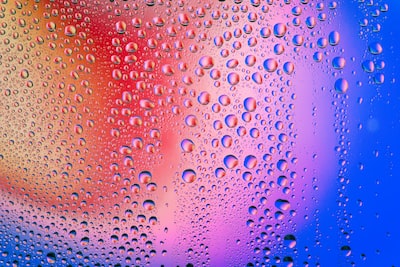In a world where technology is advancing at an unprecedented pace, it’s no surprise that artificial intelligence (AI) has found its way into the realm of music production. With the ability to mimic human creativity and musicality, AI-driven music producers have emerged as a disruptive force, promising to revolutionize the industry.
However, beneath the allure of infinite possibilities lies a daunting challenge – the rising concern of AI impersonation in music production. As AI algorithms become increasingly sophisticated, the risk of indistinguishable AI-generated music infiltrating the market raises profound questions about artistic integrity, copyright infringement, and the very essence of human expression.
This article delves into the complexities surrounding music producer AI impersonation prevention and explores potential solutions to safeguard the authenticity and creativity within our musical landscape.
In the realm of music production, where innovation and creativity intertwine, a new wave of technology has emerged, pushing the boundaries of what we thought was possible. Artificial Intelligence (AI) has undeniably become a powerful tool in our quest for sonic perfection.
However, amidst the awe-inspiring possibilities AI presents, a shadowy concern looms overhead – the frightening prospect of AI impersonation in music production. As producers, we strive to create authentic, heartfelt compositions that resonate with our listeners.
But how can we ensure that our own love and passion for music isn’t compromised by the subtle manipulations of AI? It is an urgent question that demands our attention.Picture this.
You’ve spent endless hours toiling away in the studio, meticulously crafting the perfect melody, arranging each instrument with painstaking care, and fine-tuning every cadence. Your musical vision has finally materialized into a luscious sonic tapestry that sparks joy in your heart.
It is a testament to your unique voice, your artistry. But then, you discover that an AI-powered algorithm can replicate your style, your nuances, and produce tracks that sound eerily similar to your own creations.
In an instant, your heart sinks, and doubt begins to creep into your mind. Are you replaceable? Is your art merely reducible to lines of code?Music, being a deeply personal form of expression, is the embodiment of the human experience.
It carries within it the stories, emotions, and vulnerabilities that make us uniquely human. When an AI system imitates our artistic voice, it is taking away the very essence of our authenticity, eroding the boundaries between human and machine.
How can we protect ourselves from this encroachment, this dilution of our artistic integrity? As technology advances at an unprecedented pace, it is crucial for us to engage in open dialogue, collaborate with AI developers, and establish ethical guidelines that preserve and enhance our artistic autonomy.It is important to acknowledge that AI has its merits.
The ability to analyze vast amounts of data, identify patterns, and generate music that appeals to our tastes is undeniably useful. AI can push creative boundaries, offering producers new inspiration and possibilities.
But the key lies in striking a delicate balance. We should utilize AI as a supportive tool, rather than a replacement for human ingenuity and soul.
By embracing the symbiotic relationship between human artistry and AI technology, we can harness its power to augment our creative process, rather than drown it out.In conclusion, preventing AI impersonation in music production is not about shunning technological progress.
Instead, it is about recognizing the profound value and significance of human artistry, safeguarding our creative legacy for generations to come. Let us continue exploring the possibilities that AI brings, but let us do so with caution, wisdom, and an unwavering commitment to keeping it real.
Only then can we ensure that the music we create, the music that resonates deep within our souls, remains a testament to our unique human experience.
Table of Contents
Introduction: The Rise of Music Producer AI
In a world dominated by technology, it’s no surprise that artificial intelligence (AI) has entered the music industry. AI has revolutionized music creation by analyzing data, imitating human creativity, and generating new tracks.
However, a new challenge arises: preventing AI impostors from masquerading as human music producers. To maintain authenticity and protect the integrity of the industry, measures must be taken.
This article explores techniques like watermarking, authentication processes, and AI detection algorithms to counter AI impostors. Join us as we delve into the captivating world of music producer AI and the necessary safeguards.
The Threat: Impersonation Risks for Artists and Fans
Technological advancements have shaped the music production industry. However, the rise of artificial intelligence (AI) in music production poses new risks.
It can flawlessly replicate the style, sound, and production techniques of real music producers. This puts artists and fans at risk, as anyone with access to this technology can create nearly identical tracks.
It is crucial to address the authenticity of AI-generated music and protect artists’ creative visions. To do this, we must differentiate between genuine productions and AI-generated imposters.
We need to maintain trust with loyal fan bases and safeguard the integrity of the music industry. This requires implementing verification processes and promoting transparency in AI-produced tracks.
Striking a balance between technological progress and artistic authenticity is essential.
Distinguishing Authenticity: Identifying Human versus AI Production
In today’s digital age, the line between human and machine is becoming less clear. This can be seen especially in music production.
Artificial intelligence has made it possible for algorithms to create music that is nearly identical to that made by human artists. This brings up questions about whether the music we listen to is truly created by humans.
This article explores the solutions being developed to identify and prevent AI impersonating music producers. Music industry insiders are using advanced algorithms to analyze the complexities of music production and developing new technologies to capture the essence of human expression.
They are working to stay ahead of the technologically advanced machines in order to preserve the authenticity of music in the future.
Industry Response: Ensuring Transparency and Disclosure Standards
Artificial intelligence (AI) is advancing and raising concerns about its impact on human creativity in the music industry. Professionals in the industry are discussing strategies to combat AI impersonation in music production.
The aim is to ensure transparency and disclosure standards to prevent misleading consumers and protect the creative process. Some propose a certification system to differentiate between AI-generated and human-produced music.
Others argue for algorithms that can detect AI-generated compositions, ensuring accurate credit and compensation for human creators. However, striking the right balance between embracing AI technology and preserving human artistry remains a challenge.
The industry must navigate these complexities to maintain the emotional connection and authenticity that music offers.
Protecting Artists: Legal and Ethical Considerations
Securing music production from AI impersonation is a growing concern in the industry. Advanced technology enables AI systems to increasingly imitate the style and sound of famous music producers.
This poses a significant threat to artists and the music industry’s integrity. The ability of AI to mimic the unique creative process and artistic talent of human producers raises complex legal and ethical issues.
Urgent attention is needed to address who owns the rights to AI-produced music and whether AI can be held accountable for copyright infringement.Furthermore, AI impersonation in music production also raises concerns about the authenticity and originality of released music.
With AI systems capable of replicating the styles of well-known producers, the market becomes saturated with imitations that diminish the value of genuine artistic expression. This not only hampers artists’ ability to profit from their work but also inhibits the development of new and innovative music.
To tackle this issue, proactive measures need implementation. One potential solution is developing robust algorithms that can detect AI-impersonated music based on subtle production technique differences.
Another approach involves establishing legal frameworks that clearly define the boundaries between human and AI-created music. By safeguarding artists’ rights and ensuring the authenticity of music production, the industry can maintain its integrity and shield creators from AI impersonation.
In conclusion, the threat of AI impersonation in music production brings a complex challenge that demands consideration of legal and ethical aspects to protect artists and preserve the industry’s integrity. Securing music production from AI impersonation requires collaborative efforts among artists, technology experts, and policymakers.
By implementing proactive measures and establishing clear guidelines, the industry can pave the way for a future where artistic expression thrives and human creativity remains at the forefront of music production.
Conclusion: Striking the Balance between Innovation and Authenticity
Advancements in AI technology have brought incredible possibilities to music production. However, there is a growing threat of AI impostors that mimic renowned music producers.
Protecting the integrity and authenticity of the music industry is crucial. While AI has revolutionized music creation and consumption, it’s important to find a balance that keeps human creativity at the core.
Artists, producers, and technology companies must work together to develop regulations and mechanisms that prevent AI from replacing the unique voices of music producers. By fostering innovation while safeguarding authenticity, we can create a vibrant and diverse music industry that celebrates the talents of humans and machines.
Cleanbox: The Ultimate Solution for Protecting and Prioritizing Your Inbox in the Age of AI Impersonation
Cleanbox, the ultimate solution for decluttering and protecting your inbox, now offers a groundbreaking feature to combat the increasing threat of music producer AI impersonation. With its state-of-the-art AI technology, Cleanbox swiftly sorts and categorizes incoming emails, effectively identifying and thwarting any attempts at phishing or the dissemination of malicious content.
But that’s not all; Cleanbox takes it a step further, ensuring that your priority messages are not lost in the shuffle. By efficiently prioritizing and distinguishing your important communications, you can focus on what really matters without getting lost in the noise.
This revolutionary tool is a game-changer for music producers, safeguarding their valuable intellectual property and reputation from impersonation attempts that can be detrimental to their careers. As the digital landscape continues to evolve, Cleanbox remains at the forefront, arming individuals with the necessary tools to navigate the ever-changing threat landscape and safeguard their professional endeavors.
Finishing Up
As technology advances at an unprecedented pace, the realms of creativity and authenticity face new challenges. One such challenge is the emergence of Music Producer AI, capable of imitating established artists with uncanny accuracy.
While these AI-driven tools offer new possibilities in music production, they also raise concerns about the integrity of artistic expression. How can we ensure that the true voices of musicians and producers are not overshadowed or misrepresented by synthesized counterparts? The need for robust AI impersonation prevention measures has never been more crucial.
By implementing sophisticated algorithms and rigorous authentication processes, we can safeguard the foundations of musical authenticity and uphold the uniqueness that defines the creative landscape. As we navigate this uncharted territory, it is our collective responsibility to chart a course that safeguards the sanctity of artistic production, fosters innovation, and celebrates the genuine talent that propels our beloved industry forward.






 in Wyoming
in Wyoming